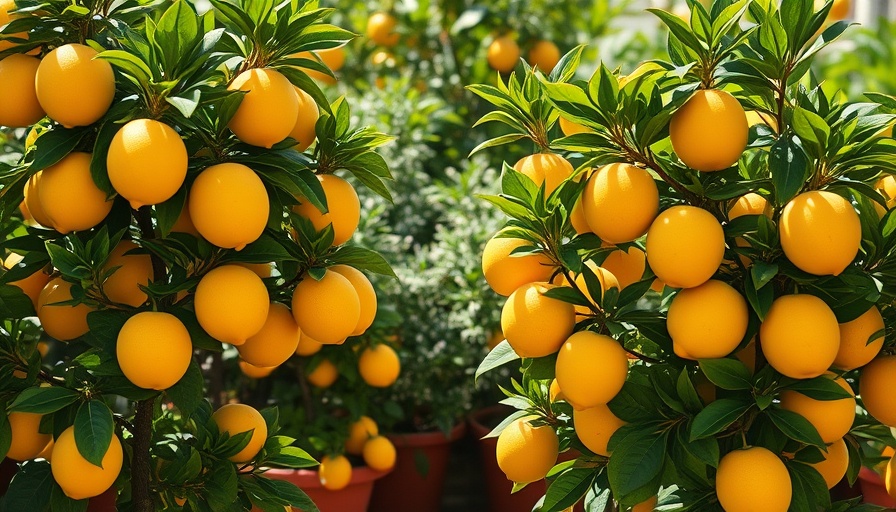
Urban Gardening Made Easy: Growing Lemon Trees in Containers
Imagine stepping outside your door to pluck fresh lemons from your very own tree. For many, this dream can become a reality, even in smaller spaces, through the enchanting experience of container gardening. With growing urbanization, more individuals seek ways to cultivate organic produce right at home. Lemon trees, in particular, offer a delightful way to add vibrancy and produce to urban gardens. Let’s explore how to successfully grow lemon trees in containers and maximize your gardening potential.
Why Choose Container Lemon Trees?
Container lemon trees are an excellent option for those who may have limited backyard space or climates not ideal for standard citrus planting. They excel in providing flexibility: pots can be moved to enjoy maximum sunlight exposure or sheltered during harsh weather. Additionally, dwarf varieties such as the Meyer Improved, Lisbon, and Ponderosa dwarf are specifically bred to thrive in pots, enabling you to embrace the art of urban gardening without sacrificing quality or flavor.
Essential Care Tips for Container Trees
Growing a lemon tree in a container requires attention to detail, but the rewards are plentiful! Here are some key tips to ensure your tree flourishes:
- Soil and Drainage: Begin with a pot that has proper drainage holes. Use a well-draining potting mix—this prevents root rot and encourages healthy growth.
- Watering Wisely: Regular watering is crucial. Lemon trees are vulnerable; if the soil dries out, they will shed their leaves. It’s best to check moisture levels often.
- Nutrient Needs: Fertilize using a slow-release formula tailored for citrus plants. This will keep your lemon trees nourished throughout the growing season.
- Humidity Levels: Citrus trees thrive in humid conditions. Consider misting your plant or utilizing a humidity tray to maintain optimal levels.
Tackling Challenges of Container Gardening
While container gardening can be incredibly fulfilling, it is not without its challenges. Container lemon trees may react differently to stressors than those planted in the ground. Be vigilant about:
- Sucker Branches: If you notice sucker branches emerging from the rootstock, remove them promptly. They can divert energy away from the main plant.
- Climate Resilience: Keep in mind that container trees are more susceptible to temperature changes. Be prepared to bring your lemon tree indoors during frosty nights or extreme heat.
- Soil Moisture: Containers can dry out quickly; never let your citrus tree go thirsty, as this will harm its growth.
The Rewards of Growing Your Own Citrus
The joy of nurturing a lemon tree is twofold: not only do you cultivate beautiful foliage, but you also reap delicious fruit that can elevate countless dishes. Fresh lemons can brighten drinks, enhance desserts, or serve as a key herb in your culinary arsenal.
Inspiring Stories to Encourage Your Gardening Journey
Many urban dwellers have successfully integrated lemon trees into their gardens, transforming their small spaces into productive green havens. Consider the story of Megan from Portland, who started with just one Meyer lemon tree in a balcony pot. Today, she harvests enough citrus to make homemade lemonade for her community, sharing her bounty at local events. Such stories serve as a powerful reminder of the impact urban agriculture can have on our lives.
Final Thoughts: Embrace Container Gardening Today!
Growing lemon trees in containers embodies the spirit of urban gardening—sustainable, rewarding, and wonderfully personal. Whether you are an aspiring gardener or an experienced green thumb, embracing this practice can connect you further with your food and community. Ready to take the plunge? Start your journey today and enjoy the beauty and benefits of growing your own container lemon tree.
**Call to Action:** Connect with your local gardening community, share your container gardening journeys, and explore more about sustainable practices that can benefit you and your environment!
 Add Row
Add Row  Add
Add 




Write A Comment